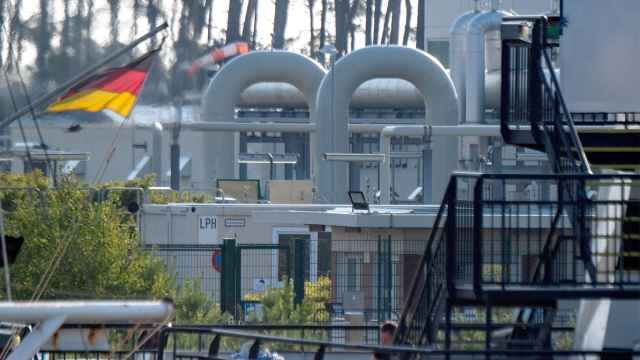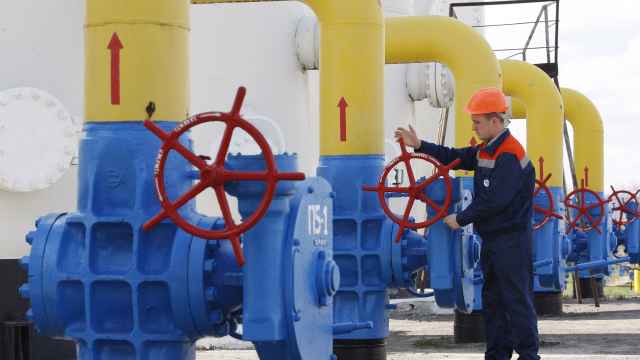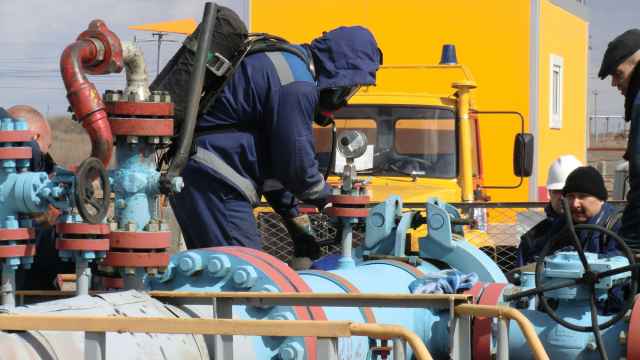Ukraine said Friday it wants Germany and the United States to impose sanctions on Russia’s gas export monopoly Gazprom over its controversial deal with Hungary and Kiev’s loss of transit capacities.
Kiev slammed as “political” this week’s contract that will supply 4.5 billion cubic meters of Russian natural gas to Hungary every year until 2036 through non-Ukrainian transit routes.
“Gazprom stopped gas transit through Ukraine to Hungary,” Yuri Vitrenko, the CEO of Ukraine’s pipeline operator Naftogaz, wrote on Facebook.
Vitrenko accused Gazprom of using gas exports as a “weapon” and said the Hungary deal “clearly demonstrates” its intent after Russia launches another pipeline that bypasses Ukraine to deliver gas to Germany, Nord Stream 2.
“A joint statement from the United States and Germany indicates that in case of the Kremlin using gas as a weapon, there should be an appropriate reaction,” he said, referring to a U.S.-German deal in July that would threaten Russia with sanctions and extend gas transit through Ukraine.
“We are now waiting for sanctions imposed on a 100% subsidiary of Gazprom, the Nord Stream 2 operator,” the Naftogaz CEO said.
Gazprom and the Kremlin have dismissed Ukraine’s concerns about the loss of its role as a transit provider. Russia and Gazprom have also maintained that the $12-billion Nord Stream 2 would increase the stability of Russian gas supplies to Europe.
Ukraine’s accusations come amid calls by European parliamentarians to investigate possible market manipulation by Gazprom amid record-high gas prices in Europe. The EU lawmakers claim that the company refuses to export gas to exert pressure on Europe as Nord Stream 2 awaits certification by German regulators after its recent completion.
The Kremlin says Russia is fulfilling its gas export obligations under existing contracts and denies that it is attempting to speed up the Nord Stream 2 approval process through natural gas export manipulation.
Ukraine makes around $3 billion a year by transiting Russian gas to Europe — a commercial relationship which has persisted despite the ongoing war between Russian-backed separatists in the Donbass and Russia’s annexation of Crimea in 2014.
A Message from The Moscow Times:
Dear readers,
We are facing unprecedented challenges. Russia's Prosecutor General's Office has designated The Moscow Times as an "undesirable" organization, criminalizing our work and putting our staff at risk of prosecution. This follows our earlier unjust labeling as a "foreign agent."
These actions are direct attempts to silence independent journalism in Russia. The authorities claim our work "discredits the decisions of the Russian leadership." We see things differently: we strive to provide accurate, unbiased reporting on Russia.
We, the journalists of The Moscow Times, refuse to be silenced. But to continue our work, we need your help.
Your support, no matter how small, makes a world of difference. If you can, please support us monthly starting from just $2. It's quick to set up, and every contribution makes a significant impact.
By supporting The Moscow Times, you're defending open, independent journalism in the face of repression. Thank you for standing with us.
Remind me later.






